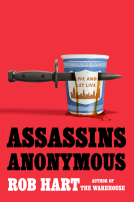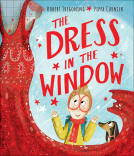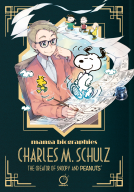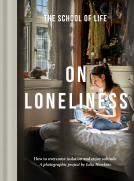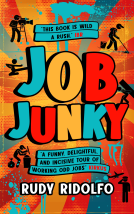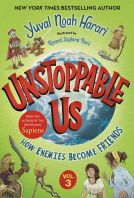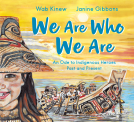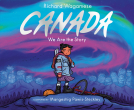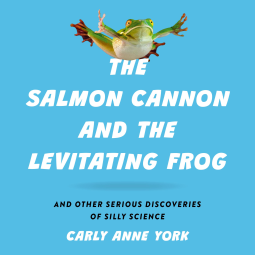
The Salmon Cannon and the Levitating Frog
And Other Serious Discoveries of Silly Science
by Carly Anne York
Narrated by Eileen Stevens
This title was previously available on NetGalley and is now archived.
Send NetGalley books directly to your Kindle or Kindle app
1
To read on a Kindle or Kindle app, please add kindle@netgalley.com as an approved email address to receive files in your Amazon account. Click here for step-by-step instructions.
2
Also find your Kindle email address within your Amazon account, and enter it here.
Pub Date Jun 17 2025 | Archive Date Jun 24 2025
Hachette Audio | Basic Books
Talking about this book? Use #TheSalmonCannonandtheLevitatingFrog #NetGalley. More hashtag tips!
Description
Why would anyone research how elephants pee? Or study worms who tie themselves into a communal knot? Or quantify the squishability of a cockroach? It all sounds pointless, silly, or even disgusting.
Maybe it is. But in The Salmon Cannon and the Levitating Frog, Carly Anne York shows how unappreciated, overlooked, and simply curiosity-driven science has led to breakthroughs big and small. Got wind power? You might have humpback whales to thank. Know anything about particle physics? Turns out there is a ferret close to the heart of it all. And if you want to keep salmon around, be thankful for that cannon! The research itself can seem bizarre. But it drives our economy. And what’s more, this stuff is simply cool.
York invites readers to appreciate the often unpredictable journey of scientific exploration, highlighting that the heart of science lies in the relentless pursuit of knowledge for its own sake. Emphasizing the hard work of the people behind the discoveries, this is an accessible, story-driven book that shows how important and exciting it is to simply let curiosity run wild.
Available Editions
| EDITION | Other Format, Unabridged |
| ISBN | 9781668650462 |
| PRICE | $24.99 (USD) |
Available on NetGalley
Average rating from 24 members
Featured Reviews
 Carolyn M, Librarian
Carolyn M, Librarian
So if you don't want to hear about animal experimentation at any point in history, don't read this book. I'm not a fan of the practice At All, but it has been part of science and finding alternatives takes work. I admire the fact that the author took the time to mention that it would come up in the book, and her own apparent dislike of it.
I really enjoyed this book, the history of it went further back than I expected and that added to my enjoyment of it. For me the fact that the author herself has done "silly science" instead of just being an author who decided to go off and research some "silly science" added to the book.
 Reviewer 820851
Reviewer 820851
I received an advanced copy of this audiobook for review. All opinions are my own. Thanks to Hachette Audio for the ALC!
This book does reference the study of animals and past testing on animals. I don't love scientific testing on animals but I understand the necessity for scientific advancement in instances such as medicine. I have hope for a more humane future, but alas, we aren't there yet. As a softhearted, squeamish person, I didn't find this difficult to listen to.
I really liked the narrator--I've heard her narrate in other genres and enjoyed her narration style, and I think she did a good job in this format as well.
Anyway on to the review.
This reminds me a bit of The Anthropocene Reviewed by John Green, which is probably my favorite nonfiction book of all time. Most of the time I read fiction, usually romance, but I do occasionally branch out. When I do read nonfiction, I prefer it to be presented with humor, or at least in vernacular rather than jargon, because while I have the capability to understand a lot of dense language, I have no interest in wading through a book that read like a text book. Much like The Anthropocene Reviewed, The Salmon Cannon... is written more like stories or episodes, starting in one place (a man changing his son's diaper and wondering how a baby can pee for so long) and ending somewhere unexpected (the realization that there's an average constant time for urination and how deviation from this standard can help diagnose prostate cancer). The book is about the importance of "silly science" and the importance of curiosity based study and how important serendipity can be.
This book was fascinating, and I would recommend it to people like me who want to branch out or those who enjoy learning without it being pretentious.
4.5/5 stars
 Lisa D, Reviewer
Lisa D, Reviewer
This book was great fun, but it's also an important topic people should know more about. Science shouldn't be political, because curiousity-driven research leads to so many great ideas and innovations. There doesn't always need to be a specific goal when studying something, just a passionate desire to learn more and a willingness to share ideas with others so that our knowledge can keep growing in leaps and bounds.
I loved the topics that were chosen, and they all seemed "silly" at first, and many of the topics came about because of random observations. For example, one guy learned a lot because he wondered about the time it took him and his new baby to pee. My favorite story was about Felicia the Ferret, who saved a $250 million particle accelerator when the scientists were looking for a way to clean it (it was a real emergency as there didn't seem to be a way and the magnets were failing, but they couldn't just take it apart). The researchers took turns taking care of Felicia until her retirement when they figured out a different way to clean the particle accelerator, and by all accounts enjoed their time with her.
Thinking outside the box is necessary tor innovation -- we often don't know what the question is until we have more information Thanks to NetGalley, I got to listen to this audiobook, and the reader was so enthusiastic! I found myself walking around talking about the book with whoever I could get to listen.
Thank you to net galley and the publisher for this audio arc! I do not know the technical term and will never learn
Did you know that all mammals larger than a mouse take the same amount of time to pee? 23 seconds. You can test it yourself.
Great and timely defense of “silly” science, ie government research that seems like a waste of money only if you’re Elon musk/have no imagination. Basic research is important because without doing it, we have no idea what discoveries it could lead to (like penicillin). Well written, great narrator, and super funny while still informative!
5 stars
This author’s “silly science” book is a way to explain why she (and other scientists) study things without any clear-cut goal in mind. It’s a paean to scientific curiosity: those who observe and wonder, then undertake the rigorous work of understanding why.
Without such inquisitive minds, we would not have new adhesives that emerged from studying the foot pads of gecko lizards, more efficient wind turbines from studying the fins of whales. Today’s pregnancy tests owe much to the study of African claw frogs. With humor and many such examples, the author makes a strong case for science for science’s sake. She reminds us of the Golden Fleece awards given by a senator decrying public spending on scientific research for silly-sounding topics, but makes a strong case for why such work is appropriate and necessary — even when it does not lead to commercially viable products. I found the audiobook to be informative and entertaining, with excellent narration. 4.5 stars rounded up.
My thanks to the author, publisher, @HachetteAudio, and #NetGalley for early access to the audiobook of #TheSalmonCannonandtheLevitatingFrog for review purposes. Publication date: 17 June 2025.
 Educator 1367035
Educator 1367035
The Salmon Cannon and the Levitating Frog
Carly Anne York
Narrator: Eileen Stevens
Hachette Audio / Basic Books
Like the web content producer of the same name, I f**kin love science, and Carly Anne York’s book injected it right into my veins. The title is captivating, and so is the rest of the book – informative yet accessible and engaging at the same time. Full of little science trivia, including how quirky experiments lead to applications that affect our daily lives. Somehow, I ended up with both the digital and audio galleys, and I loved them both!
Readers who liked this book also liked:
L.M Montgomery
Children's Fiction, Comics, Graphic Novels, Manga, Teens & YA
Yuzuru Kuki
Biographies & Memoirs, Children's Nonfiction, Comics, Graphic Novels, Manga
JUNO
Arts & Photography, Comics, Graphic Novels, Manga, Travel
Silvia Moreno-Garcia
Historical Fiction, Literary Fiction, Sci Fi & Fantasy
We Are Bookish
Sci Fi & Fantasy, Teens & YA




